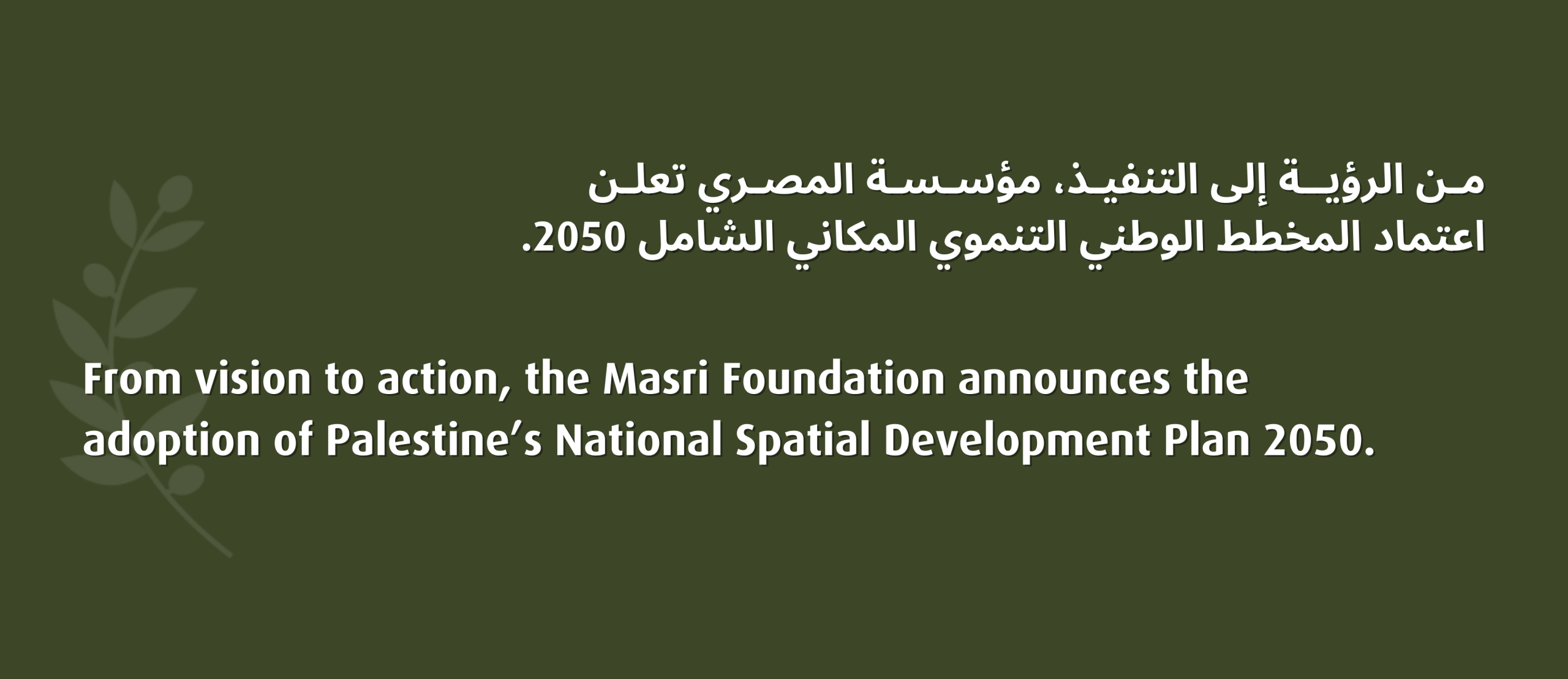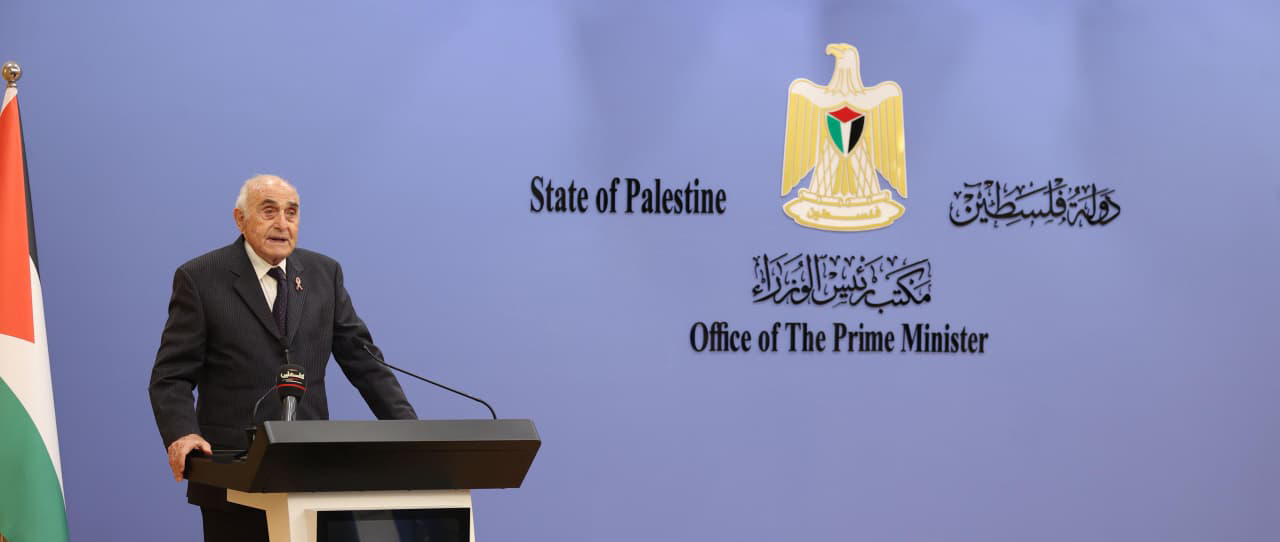Ramallah, Palestine – September 3, 2025 – The Munib & Angela Masri Foundation welcomed the adoption of the National Spatial Development Plan 2050 (NSDP 2050) by the Palestinian Council of Ministers. Prepared under a 2020 Memorandum of Understanding with the Ministry of Local Government, the Foundation provided full financial and technical support to ensure its completion on national grounds.
Led by Dr. Sameer Abu-Eisheh from the leading firm Universal Group of Engineering and Consulting, a consultative team of 20 Palestinian experts from diverse development sectors worked under the supervision of a governmental steering committee chaired by the Ministry of Planning and International Cooperation. The work was coordinated with the relevant ministries and institutions, with consultations conducted with civil society.
The plan establishes a framework for balanced urban, economic, and social development by promoting efficient land use, integrating spatial and development planning, and safeguarding environmental sustainability, cultural heritage, and agricultural lands. It covers all Palestinian territories, including the West Bank with Jerusalem, the Gaza Strip, and the corridor connecting them. The plan aims to advance the realization of an independent Palestinian State and ensure economic and geographic separation from the occupation.
Minister of Planning and International Cooperation, Dr. Estephan Salameh, emphasized that the plan is designed with flexibility, allowing for periodic updates in response to political, economic, and social developments. He highlighted its importance for the reconstruction and development of Gaza following the devastation of war. The plan also provides a framework for major national projects and promotes integration between economic centers and urban hubs, thereby strengthening opportunities for balanced and regional development.
The plan includes spatial projections for current and future land use, taking into account natural ecosystems, biodiversity, groundwater, agricultural areas, and cultural and archaeological sites. It defines zones for urban expansion and rural development, new cities, economic and urban development hubs, and networks for roads and transportation, communications, energy, and water. It also incorporates facilities such as border crossings, airports, seaports, and centers for social and economic services, in addition to the corridor connecting the West Bank and Gaza Strip. With a horizon to 2050, the plan is structured in three phases, addressing natural population growth, the Palestinian returnees, and the long-term requirements for infrastructure, services, and living standards.
Munib R. Masri, founder of the Masri Foundation, expressed pride in making the plan a fully national project, financed entirely by the Foundation without reliance on international donors. He affirmed that the plan stands as a cornerstone in the pursuit of an independent Palestinian state with full sovereignty, while advancing sustainable development to safeguard the rights of future generations to live with dignity, in line with the Foundation’s mission and values.



